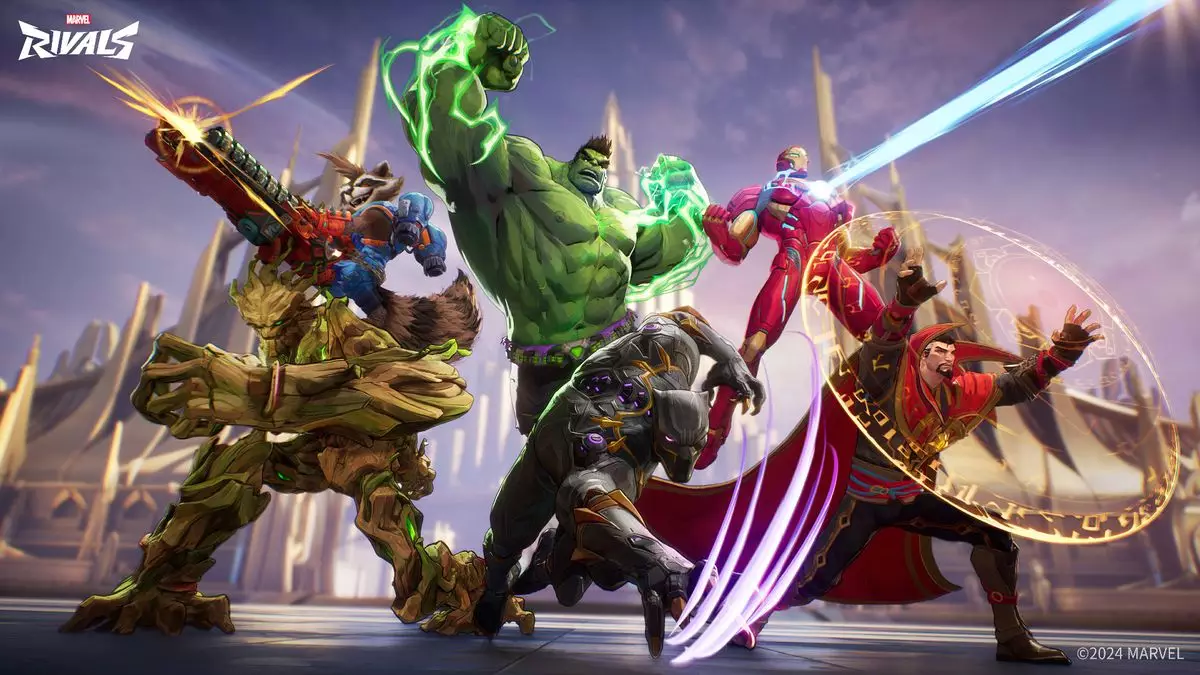The dynamic landscape of multiplayer games is rife with evolving strategies, fan debates, and the inescapable urge to rank heroes based on their potency in battle. Among these games, Marvel Rivals stands out for its complex roster, where players often find themselves distracted by the chaos of hero abilities and the synergy between teammates. Amidst the clamor, one dedicated player, known as Aggragating_Job9976, has emerged with an analytical breakdown that challenges prevailing assumptions about some of the franchise’s most iconic characters.
At the crux of Aggragating_Job9976’s insightful assessment lies a compelling methodology. By tapping into the data from TOP500 players, this statistical aficionado was able to construct a nuanced tier list that transcends the surface-level observations many players rely upon. Rather than simply cataloging the win rates of particular heroes, this fan took the extra step of calculating performance metrics over a broader sample of game sessions. Specifically, players with a minimum of three hours on a hero were prioritized, although those with under three hours but over two were also included to ensure a comprehensive dataset. This meticulous approach culminated in nearly 600 data points, providing a rich tapestry of information that would be daunting for the average player to interpret alone.
The result? A fresh perspective on hero rankings that defies the instinctual choices many players make while navigating the game.
The standout figures emerging from Aggragating_Job9976’s research are somewhat unexpected. The tier list highlights Doctor Strange, Hela, Psylocke, Mantis, and Luna Snow as the S-tier characters, leaving many traditional favorites in the dust. On the contrary, fan-favorites like Iron Fist and the formidable Hulk find themselves relegated to a mere B tier. This revelation could lead one to question entrenched beliefs that have formed through gaming experiences. After all, how often do players assume that popularity correlates with effectiveness?
By emphasizing a combination of win rates and pick rates, the analysis unveils a more sophisticated understanding of hero viability. For instance, the renowned Doctor Strange boasts a win rate of 64.6% across 2,900 games – a statistic that speaks volumes about a hero’s reliability compared to others, like Peni Parker, who sports a commendable 70.5% win rate derived from a much lesser sample size of only 400 games.
Aggragating_Job9976’s findings delve not just into numbers but the underlying psychology of hero selection among players. The ranking suggests that while some characters may achieve high win rates, their low pick rates indicate that they aren’t the go-to choices among top-tier players. The tier list implores us to reconcile our identities as players with cold hard data — advocating for a shift in how players consider viability.
One cannot dismiss, however, the excitement of personal attachment to certain characters. For many, playing as beloved heroes like Wolverine or The Punisher provides emotional gratification, creating a lifestyle among community members driven by fandom rather than metrics. For a novice player, choosing a main based on aesthetic appeal is often more instinctual than calculating the stats behind those choices.
Perhaps one of the most jolting outcomes from Aggragating_Job9976’s tier list is the D tier placement of Scarlet Witch. Despite her storied legacy within the Marvel canon and powerful abilities in-game, the statistical data suggests she might not hold up against the strategic prowess of other contenders. Such contrasting results prompt essential discussions within the Marvel Rivals community surrounding perception vs. reality. How could such a well-regarded character fare so poorly in the eyes of data-driven analysis?
Ultimately, Aggragating_Job9976’s tier list serves as a reminder: in the world of online multiplayer gaming, statistics often tell a different story than what is lived in play. As players continue to engage with Marvel Rivals, the dichotomy between perceived value and statistical success will continue to shape the meta, making the community more aware of the complexities involved in hero selection.


Leave a Reply